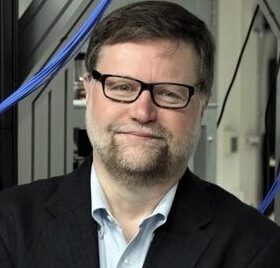A selection of the most important recent news, articles, and papers about quantum computing.
News and Articles
A breakthrough on the edge: One step closer to topological quantum computing
(Wednesday, July 10, 2024) “Researchers at the University of Cologne have achieved a significant breakthrough in quantum materials, potentially setting the stage for advancements in topological superconductivity and robust quantum computing / publication in ‘Nature Physics’”
Partnership boosts UK access to most powerful quantum technologies – UKRI
(Thursday, July 11, 2024) “UK industry and researchers will gain unparalleled access to the world’s most powerful quantum computers.”
Bob Sutor; Vice President and Practice Lead, Emerging Technologies, The Futurum Group will speak at IQT Quantum + AI in New York City October 29-30 – Inside Quantum Technology
(Friday, July 12, 2024) “Bob Sutor; Vice President and Practice Lead, Emerging Technologies, The Futurum Group will speak at IQT Quantum + AI in New York City October 29-30. Dr. Bob Sutor has been a technical leader and executive in the IT industry for over 40 years. He is a theoretical mathematician by training, with a Ph.D. from Princeton”
Technical Papers and Preprints
[2406.17653] Algorithmic Fault Tolerance for Fast Quantum Computing
 (Tuesday, June 25, 2024) “Fast, reliable logical operations are essential for the realization of useful quantum computers, as they are required to implement practical quantum algorithms at large scale. By redundantly encoding logical qubits into many physical qubits and using syndrome measurements to detect and subsequently correct errors, one can achieve very low logical error rates. However, for most practical quantum error correcting (QEC) codes such as the surface code, it is generally believed that due to syndrome extraction errors, multiple extraction rounds — on the order of the code distance d — are required for fault-tolerant computation. Here, we show that contrary to this common belief, fault-tolerant logical operations can be performed with constant time overhead for a broad class of QEC codes, including the surface code with magic state inputs and feed-forward operations, to achieve “algorithmic fault tolerance”. Through the combination of transversal operations and novel strategies for correlated decoding, despite only having access to partial syndrome information, we prove that the deviation from the ideal measurement result distribution can be made exponentially small in the code distance. We supplement this proof with circuit-level simulations in a range of relevant settings, demonstrating the fault tolerance and competitive performance of our approach. Our work sheds new light on the theory of fault tolerance, potentially reducing the space-time cost of practical fault-tolerant quantum computation by orders of magnitude.”
(Tuesday, June 25, 2024) “Fast, reliable logical operations are essential for the realization of useful quantum computers, as they are required to implement practical quantum algorithms at large scale. By redundantly encoding logical qubits into many physical qubits and using syndrome measurements to detect and subsequently correct errors, one can achieve very low logical error rates. However, for most practical quantum error correcting (QEC) codes such as the surface code, it is generally believed that due to syndrome extraction errors, multiple extraction rounds — on the order of the code distance d — are required for fault-tolerant computation. Here, we show that contrary to this common belief, fault-tolerant logical operations can be performed with constant time overhead for a broad class of QEC codes, including the surface code with magic state inputs and feed-forward operations, to achieve “algorithmic fault tolerance”. Through the combination of transversal operations and novel strategies for correlated decoding, despite only having access to partial syndrome information, we prove that the deviation from the ideal measurement result distribution can be made exponentially small in the code distance. We supplement this proof with circuit-level simulations in a range of relevant settings, demonstrating the fault tolerance and competitive performance of our approach. Our work sheds new light on the theory of fault tolerance, potentially reducing the space-time cost of practical fault-tolerant quantum computation by orders of magnitude.”
[2407.02553] Large-scale quantum reservoir learning with an analog quantum computer
 (Tuesday, July 02, 2024) “Quantum machine learning has gained considerable attention as quantum technology advances, presenting a promising approach for efficiently learning complex data patterns. Despite this promise, most contemporary quantum methods require significant resources for variational parameter optimization and face issues with vanishing gradients, leading to experiments that are either limited in scale or lack potential for quantum advantage. To address this, we develop a general-purpose, gradient-free, and scalable quantum reservoir learning algorithm that harnesses the quantum dynamics of neutral-atom analog quantum computers to process data. We experimentally implement the algorithm, achieving competitive performance across various categories of machine learning tasks, including binary and multi-class classification, as well as timeseries prediction. Effective and improving learning is observed with increasing system sizes of up to 108 qubits, demonstrating the largest quantum machine learning experiment to date. We further observe comparative quantum kernel advantage in learning tasks by constructing synthetic datasets based on the geometric differences between generated quantum and classical data kernels. Our findings demonstrate the potential of utilizing classically intractable quantum correlations for effective machine learning. We expect these results to stimulate further extensions to different quantum hardware and machine learning paradigms, including early fault-tolerant hardware and generative machine learning tasks.”
(Tuesday, July 02, 2024) “Quantum machine learning has gained considerable attention as quantum technology advances, presenting a promising approach for efficiently learning complex data patterns. Despite this promise, most contemporary quantum methods require significant resources for variational parameter optimization and face issues with vanishing gradients, leading to experiments that are either limited in scale or lack potential for quantum advantage. To address this, we develop a general-purpose, gradient-free, and scalable quantum reservoir learning algorithm that harnesses the quantum dynamics of neutral-atom analog quantum computers to process data. We experimentally implement the algorithm, achieving competitive performance across various categories of machine learning tasks, including binary and multi-class classification, as well as timeseries prediction. Effective and improving learning is observed with increasing system sizes of up to 108 qubits, demonstrating the largest quantum machine learning experiment to date. We further observe comparative quantum kernel advantage in learning tasks by constructing synthetic datasets based on the geometric differences between generated quantum and classical data kernels. Our findings demonstrate the potential of utilizing classically intractable quantum correlations for effective machine learning. We expect these results to stimulate further extensions to different quantum hardware and machine learning paradigms, including early fault-tolerant hardware and generative machine learning tasks.”
[2407.07202] Quantum Approximate Optimization: A Computational Intelligence Perspective
 (Tuesday, July 09, 2024) “Quantum computing is an emerging field on the multidisciplinary interface between physics, engineering, and computer science with the potential to make a large impact on computational intelligence (CI). The aim of this paper is to introduce quantum approximate optimization methods to the CI community because of direct relevance to solving combinatorial problems. We introduce quantum computing and variational quantum algorithms (VQAs). VQAs are an effective method for the near-term implementation of quantum solutions on noisy intermediate-scale quantum (NISQ) devices with less reliable qubits and early-stage error correction. Then, we explain Farhi et al.’s quantum approximate optimization algorithm (Farhi’s QAOA, to prevent confusion). This VQA is generalized by Hadfield et al. to the quantum alternating operator ansatz (QAOA), which is a nature-inspired (particularly, adiabatic) quantum metaheuristic for approximately solving combinatorial optimization problems on gate-based quantum computers. We discuss connections of QAOA to relevant domains, such as computational learning theory and genetic algorithms, discussing current techniques and known results regarding hybrid quantum-classical intelligence systems. We present a schematic of how QAOA is constructed, and also discuss how CI techniques can be used to improve QAOA. We conclude with QAOA implementations for the well-known maximum cut, maximum bisection, and traveling salesperson problems, which can serve as templates for CI practitioners interested in using QAOA.”
(Tuesday, July 09, 2024) “Quantum computing is an emerging field on the multidisciplinary interface between physics, engineering, and computer science with the potential to make a large impact on computational intelligence (CI). The aim of this paper is to introduce quantum approximate optimization methods to the CI community because of direct relevance to solving combinatorial problems. We introduce quantum computing and variational quantum algorithms (VQAs). VQAs are an effective method for the near-term implementation of quantum solutions on noisy intermediate-scale quantum (NISQ) devices with less reliable qubits and early-stage error correction. Then, we explain Farhi et al.’s quantum approximate optimization algorithm (Farhi’s QAOA, to prevent confusion). This VQA is generalized by Hadfield et al. to the quantum alternating operator ansatz (QAOA), which is a nature-inspired (particularly, adiabatic) quantum metaheuristic for approximately solving combinatorial optimization problems on gate-based quantum computers. We discuss connections of QAOA to relevant domains, such as computational learning theory and genetic algorithms, discussing current techniques and known results regarding hybrid quantum-classical intelligence systems. We present a schematic of how QAOA is constructed, and also discuss how CI techniques can be used to improve QAOA. We conclude with QAOA implementations for the well-known maximum cut, maximum bisection, and traveling salesperson problems, which can serve as templates for CI practitioners interested in using QAOA.”
[2407.07694] Scalable, high-fidelity all-electronic control of trapped-ion qubits
 (Wednesday, July 10, 2024) “The central challenge of quantum computing is implementing high-fidelity quantum gates at scale. However, many existing approaches to qubit control suffer from a scale-performance trade-off, impeding progress towards the creation of useful devices. Here, we present a vision for an electronically controlled trapped-ion quantum computer that alleviates this bottleneck. Our architecture utilizes shared current-carrying traces and local tuning electrodes in a microfabricated chip to perform quantum gates with low noise and crosstalk regardless of device size. To verify our approach, we experimentally demonstrate low-noise site-selective single- and two-qubit gates in a seven-zone ion trap that can control up to 10 qubits. We implement electronic single-qubit gates with 99.99916(7
(Wednesday, July 10, 2024) “The central challenge of quantum computing is implementing high-fidelity quantum gates at scale. However, many existing approaches to qubit control suffer from a scale-performance trade-off, impeding progress towards the creation of useful devices. Here, we present a vision for an electronically controlled trapped-ion quantum computer that alleviates this bottleneck. Our architecture utilizes shared current-carrying traces and local tuning electrodes in a microfabricated chip to perform quantum gates with low noise and crosstalk regardless of device size. To verify our approach, we experimentally demonstrate low-noise site-selective single- and two-qubit gates in a seven-zone ion trap that can control up to 10 qubits. We implement electronic single-qubit gates with 99.99916(7
Share this:
Notable Recent Quantum News, Articles, and Papers for Thursday, July 11, 2024
A selection of the most important recent news and articles about #quantumcomputing.
Fourier Quantum Process Tomography | npj Quantum Information
(Thursday, May 09, 2024) “The characterization of a quantum device is a crucial step in the development of quantum experiments. This is accomplished via Quantum Process Tomography, which combines the outcomes of different projective measurements to deliver a possible reconstruction of the underlying process. The tomography is typically performed by processing an overcomplete set of measurements and extracting the process matrix from maximum-likelihood estimation. Here, we introduce Fourier Quantum Process Tomography, a technique which requires a reduced number of measurements, and benchmark its performance against the standard maximum-likelihood approach. Fourier Quantum Process Tomography is based on measuring probability distributions in two conjugate spaces for different state preparations and projections. Exploiting the concept of phase retrieval, our scheme achieves a complete and robust characterization of the setup by processing a near-minimal set of measurements. We experimentally test the technique on different space-dependent polarization transformations, reporting average fidelities higher than 90% and significant computational advantage.”
Enabling Quantum Computing with AI | NVIDIA Technical Blog
(Sunday, May 12, 2024) “Building a useful quantum computer in practice is incredibly challenging. Significant improvements are needed in the scale, fidelity, speed, reliability, and programmability of quantum computers to…”
Kipu Quantum Acquires Quantum Computing Platform Built by Anaqor AG to Accelerate Development of Industrially Relevant Quantum Solutions
(Thursday, July 11, 2024) “/PRNewswire/ — Kipu Quantum, the worldwide leading quantum software company, announced today the strategic acquisition of PlanQK, the German quantum computing…”
Simulating the universe’s most extreme environments | IBM Quantum Computing Blog
“Scalable techniques for quantum simulations of high-energy physics.”
Quantum in Context: Quantum Companies Rotate in New Leaders – The Futurum Group
“Learn which quantum computing companies have recently replaced their CEOs & reasons Boards of Directors make such changes.”
EDF, Alice & Bob, Quandela and CNRS Partner to Optimize Quantum Computing’s Energy Efficiency
“PARIS, July 10, 2024 — French electric utility company EDF, in collaboration with quantum computing firms Quandela and Alice & Bob, and the French National Centre for Scientific Research (CNRS), has […]”
Study of Quantum Computing Energy Efficiency – The Futurum Group
“Learn about a study in France that will look at the energy efficiency of quantum computing systems versus HPC for well-known algorithms.”
Oxford Ionics breaks global quantum performance records
“Oxford Ionics has demonstrated the highest performing quantum chip in the world, which can be produced at scale in a standard semiconductor fabrication plant.”



